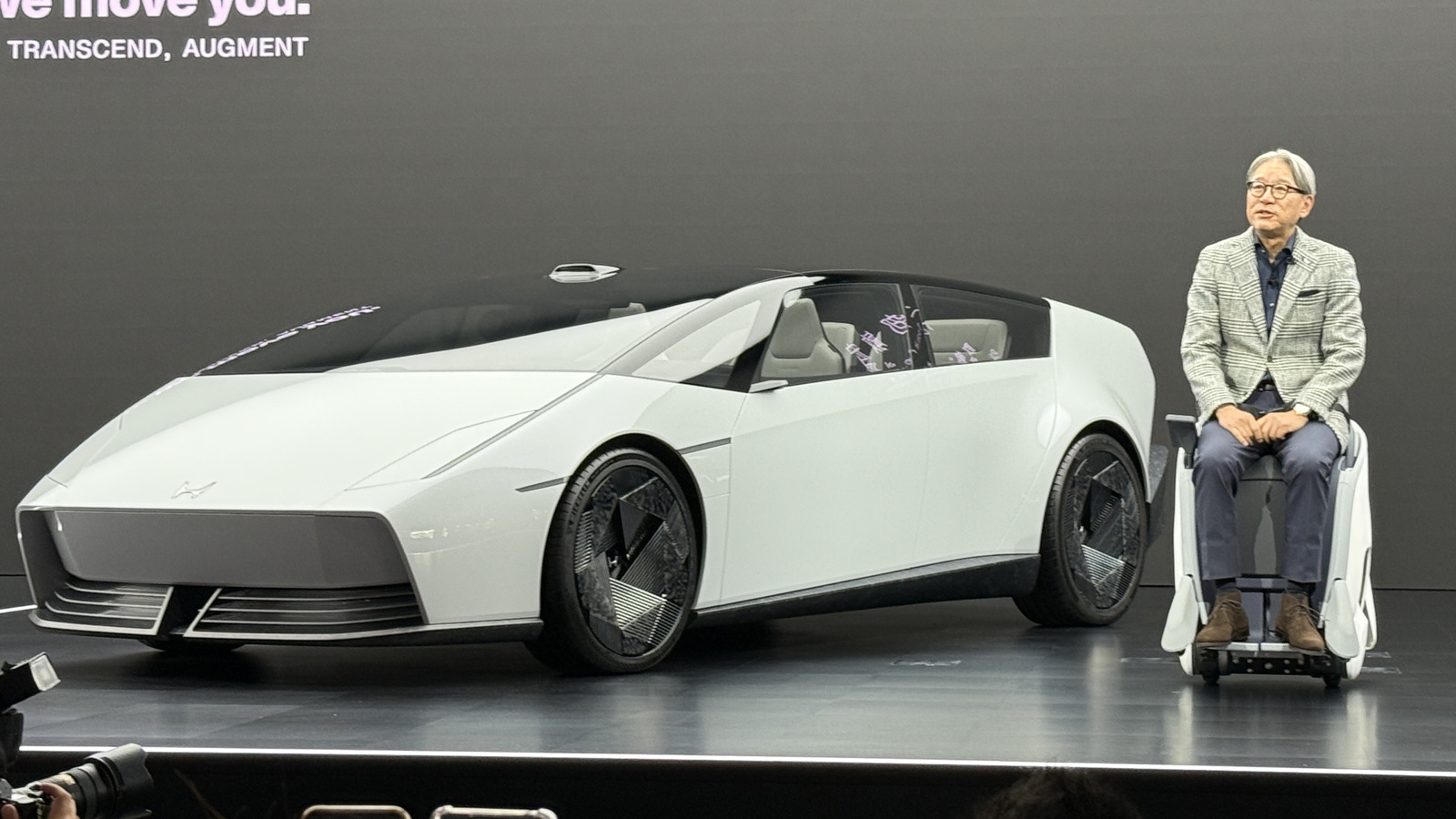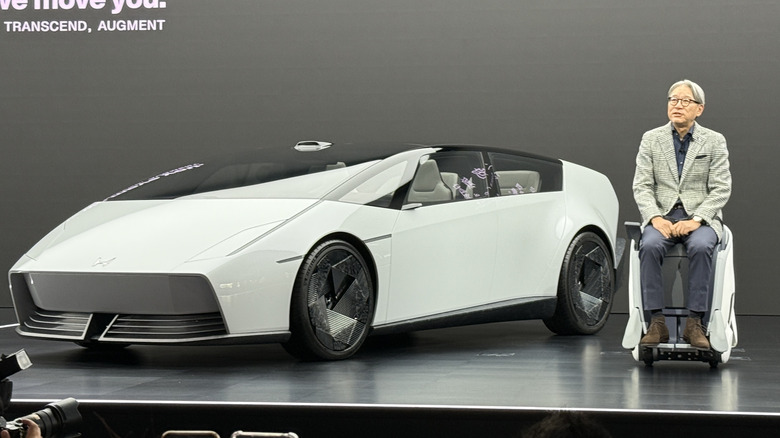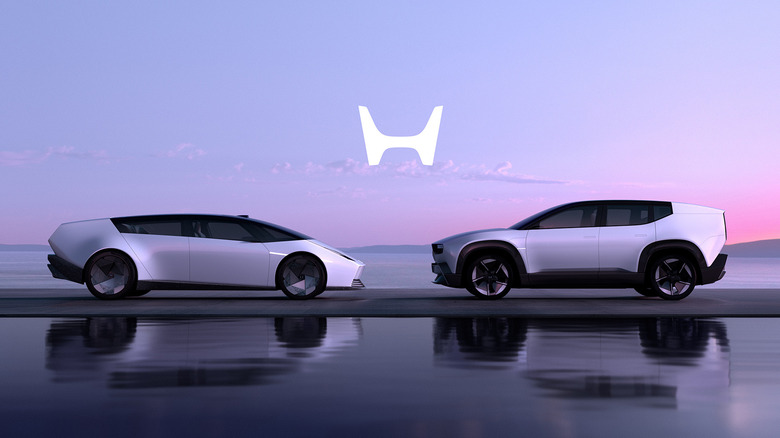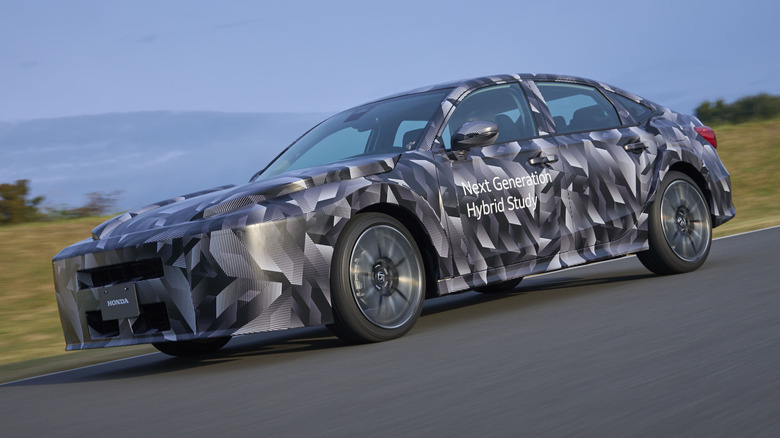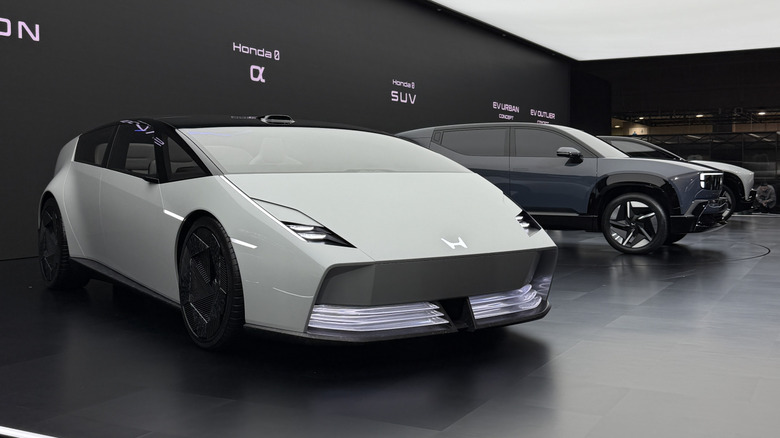Like every other automaker, Honda is having a bit of a tough time navigating what to do with its electric vehicle plans. During a sit-down with media members ahead of the Japan Mobility Show, CEO Toshihiro Mibe talked at length about the various issues Honda is now facing in this area, thanks to changes to the industry implemented by President Trump and his administration. One of the most notable, of course, is the fact that he killed off the $7,500 vehicle tax credit, and it’s forcing Honda to rethink its EV timeline. That includes when it might bring a cheaper EV to our shores, like the newly revealed Honda 0 α.
“With the Trump administration in place, we have the sense that EV growth has been moved back out by maybe five years or so into the further future,” Mibe said through a translator. “So, if we think about whether do we have to really come up with an affordable EV right away, we get the feeling not really.”
Full Disclosure: Honda paid for my flights, food and hotels while I was in Japan.
2030 and beyond
Now, Honda is looking toward 2030 as a new inflection point for whether or not it’ll begin to consider bringing cheaper EVs to our shores. At that point, Trump will (theoretically) be out of office, and the company will have a better understanding of what U.S. politics and policies are surrounding EVs. It’s also looking toward the results of the election held on November 4 of this year to see where things may be headed, but until the end of the decade, we’re going to have to make do with the more expensive 0 Series Saloon and SUV. Of course, we don’t have pricing for those vehicles yet, but I don’t expect them to be comparable to the Accord and CR-V.
“We are, of course, aware that affordable EVs are important for the U.S. market as well. So, in the past, going back several years, we have had a history where we have considered affordable EVs together with GM,” Mibe said. “However, when it comes to bringing down the cost of EVs considerably, we need to think about the battery strategy, so unless the battery cost is significantly lower, the total cost of the EV cannot be reduced significantly. That’s the reality.”
Hybrids are the way for now
While the EV strategy is getting admittedly “difficult,” according to Mibe, the company will instead try to grow its hybrid business. In 2027, Honda plans to launch a revamped hybrid drivetrain that will be more powerful and efficient than the one currently on sale, and it should bring production costs down about 20%. To help with tariffs, Honda is also planning to increase the amount of U.S.-made content within its hybrids.
“For the time being, we will base our business on hybrid vehicles, and then make decisions about battery EVs,” Mibe said. At a different point during the sit-down, Mibe talked about decades far in the future, like 2040 or 2050, when electrification would have to “move faster.” It sure sounds like Honda isn’t planning for the total EV revolution to come anytime soon.
In the nearer future, Mibe says hybrid volume will continue to increase through 2030. Right now, Honda sells about 800,000 hybrids per year. The goal is to get that number over 2 million by 2030.
The best laid 0 Series plans
Still, none of this means Honda is changing its plans for the 0 Series lineup. When asked if it is considering offering its flagship EVs with hybrid powertrains, Mibe quickly dismissed the idea, saying the 0 Series was specifically designed as an EV platform, so there’s no plan to add any sort of hybrid component.
Currently, Honda has shown three different 0 Series models, and because Honda believes the 0 α Prototype is too small and too cheap to come here, it leaves me wanting a third car in the U.S. lineup. Well, while Mibe wouldn’t go so far as to confirm a larger 0 Series SUV, he did say the automaker was doing research and development on the next generation of EVs on a different platform, and perhaps one of those could be a large SUV.
“We will want to come up with a full kind of platform product lineup. We do have plans to come up with those,” Mibe said. “However, it won’t be soon that we come up with a larger EV.” Like so many other things in Honda’s world right now, Mibe says it might come along in 2030 or later.


